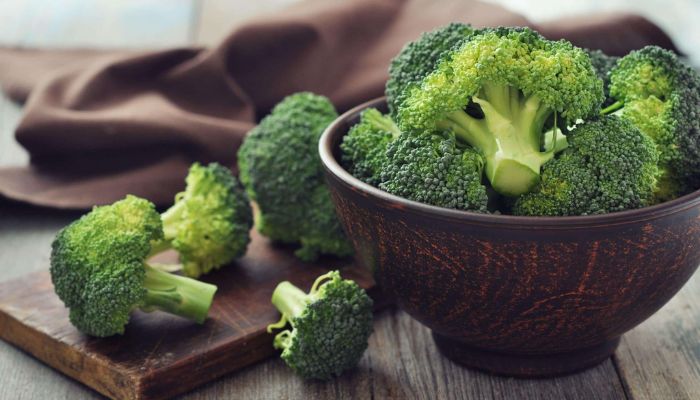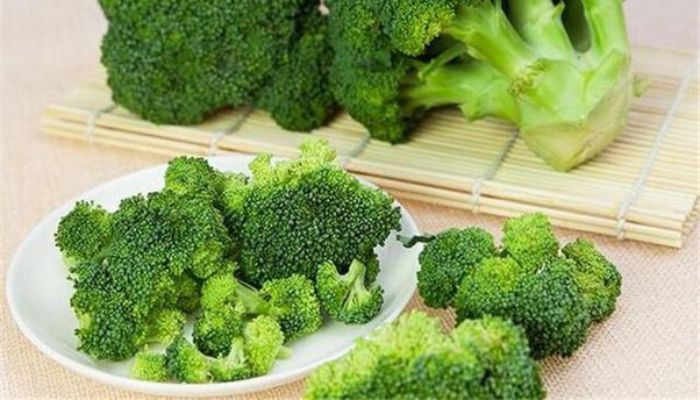As a nutritionist with over 7 years of experience in the field, I often get asked about the health benefits of different vegetables. One veggie that frequently comes up in conversations with my clients is broccoli. Here we will learn the benefits of “Broccoli Benefits: How This Low-Calorie Veggie Boosts Your Health”.
Many people know that broccoli is a healthy food, but they don’t fully understand why it’s so good for you. That’s why in this article, I’ll share the top broccoli benefits backed by scientific research. I’ll also provide nutrition facts and easy recipe ideas to help you add more of this superstar veggie to your diet.
What Makes Broccoli So Nutritious?
Broccoli belongs to the cruciferous family of vegetables along with cauliflower, Brussels sprouts, kale and cabbage. It’s a great source of vitamins, minerals, fiber and antioxidants.
One cup of chopped raw broccoli (about 91g) provides:
- Vitamin C: 135% of the Reference Daily Intake (RDI)
- Vitamin K: 116% of the RDI
- Folate: 14% of the RDI
- Potassium: 8% of the RDI
- Manganese: 7% of the RDI
- Vitamin B6: 6% of the RDI
- Phosphorus: 5% of the RDI
- Magnesium: 5% of the RDI
- Protein: 3 grams
- Fiber: 2.4 grams
Additionally, the same serving of raw broccoli contains only 31 calories and 0 fat. This makes it an excellent low-calorie vegetable option for weight management.
Over my years as a nutritionist, I’ve seen many clients successfully lose weight by increasing their non-starchy vegetable intake, while controlling portions of high-calorie foods. Broccoli is perfect for this approach.
Top 6 Science-Backed Broccoli Benefits
Here are some of the top researched health benefits associated with eating broccoli:
- Cancer Prevention: Broccoli contains sulforaphane, a plant compound with potent anti-cancer properties. Multiple studies have shown sulforaphane can help prevent certain types of cancers by protecting cells from DNA damage.
Research also indicates broccoli consumption may aid in slowing cancer growth and tumor formation in some cases. The protective effects are strongest against prostate, colon, breast and lung cancers.
- Heart Health: Eating broccoli and other cruciferous veggies is linked with a lower risk of heart disease. Sulforaphane helps by reducing inflammation and preventing arterial damage.
Broccoli also contains significant amounts of folate and potassium. Folate helps lower homocysteine levels, a marker for heart disease risk, while potassium supports healthy blood pressure.
- Immune Support: One cup of broccoli provides more than 2x your daily vitamin C needs. Getting enough vitamin C is key for immune defense, as it helps white blood cells function properly and acts as an antioxidant.
Broccoli also contains glutathione, an antioxidant that may help boost immunity. In my practice, I’ve observed broccoli and other cruciferous vegetables helping clients fight colds faster.
- Digestive Health: The insoluble fiber in broccoli, in the form of cellulose, promotes regularity and healthy bowel movements. The soluble fiber feeds good bacteria in your gut microbiome and helps prevent leaky gut issues.
Broccoli sprouts are especially high in sulforaphane, which can protect the stomach lining from H. pylori bacteria overgrowth and related gastric issues.
- Bone Health: Broccoli contains vitamin K and calcium, two nutrients associated with healthy bones and preventing osteoporosis. Just one cup of raw broccoli provides over 100% of the recommended vitamin K intake.
Studies also show the sulforaphane in broccoli may help prevent or slow the progression of osteoarthritis.
- Eye Health: The carotenoid antioxidants lutein and zeaxanthin found in broccoli may help prevent age-related eye diseases like cataracts and macular degeneration.
Broccoli also provides vitamin A, needed for proper vision and eye development. As an experienced nutritionist, I often recommend clients at risk for eye issues eat broccoli and other lutein-rich vegetables.
How to Select, Store and Cook Broccoli
When shopping for broccoli, look for tightly packed florets that are uniform in color. Avoid broccoli with yellowing or wilted stalks. Store fresh broccoli in the fridge for 3-5 days in a perforated bag.
While raw broccoli maintains the highest nutrient levels, cooking can help make some nutrients more absorbable. Steaming, roasting or sautéing are quick and healthy cooking methods. Avoid overcooking.
To get creative, try adding broccoli to soups, salads, stir-fries, omelets or pasta dishes. Blending into smoothies is another easy way to use raw broccoli.
Here are a few of my favorite broccoli recipes:
- Broccoli Cheddar Soup
- Broccoli Fried Rice
- Broccoli Quinoa Salad with Feta
- Roasted Garlic Lemon Broccoli
- Broccoli Pesto Pasta
Conclusion
As a nutritionist, broccoli is one of my top recommended vegetables because of its stellar nutritional profile and scientifically proven benefits. Just a few servings per week can help with cancer prevention, heart health, immunity, digestion, bone strength and eye health.
With its versatile flavor and texture, broccoli is easy to enjoy as a side dish or incorporate into many recipes. Focus on purchasing fresh broccoli whenever possible and aim for a minimum of 2-3 cups per week to reap the rewards. Your body will thank you!
I hope this provides a helpful overview of the many broccoli benefits backed by research. Let me know if you have any other questions!

Lane is a seasoned nutrition expert with over 5 years of experience in guiding individuals toward healthier eating habits and sustainable weight management. Holding a degree in Nutrition Science, Lane specializes in personalized dietary plans that align with specific calorie limits, helping people achieve their fitness goals without sacrificing enjoyment. As the lead author at mycalorielimit.com, her approach is rooted in evidence-based practices and a deep understanding of nutritional needs, making her insights both reliable and practical. Connect with Lane on Instagram for daily tips and inspiration.

